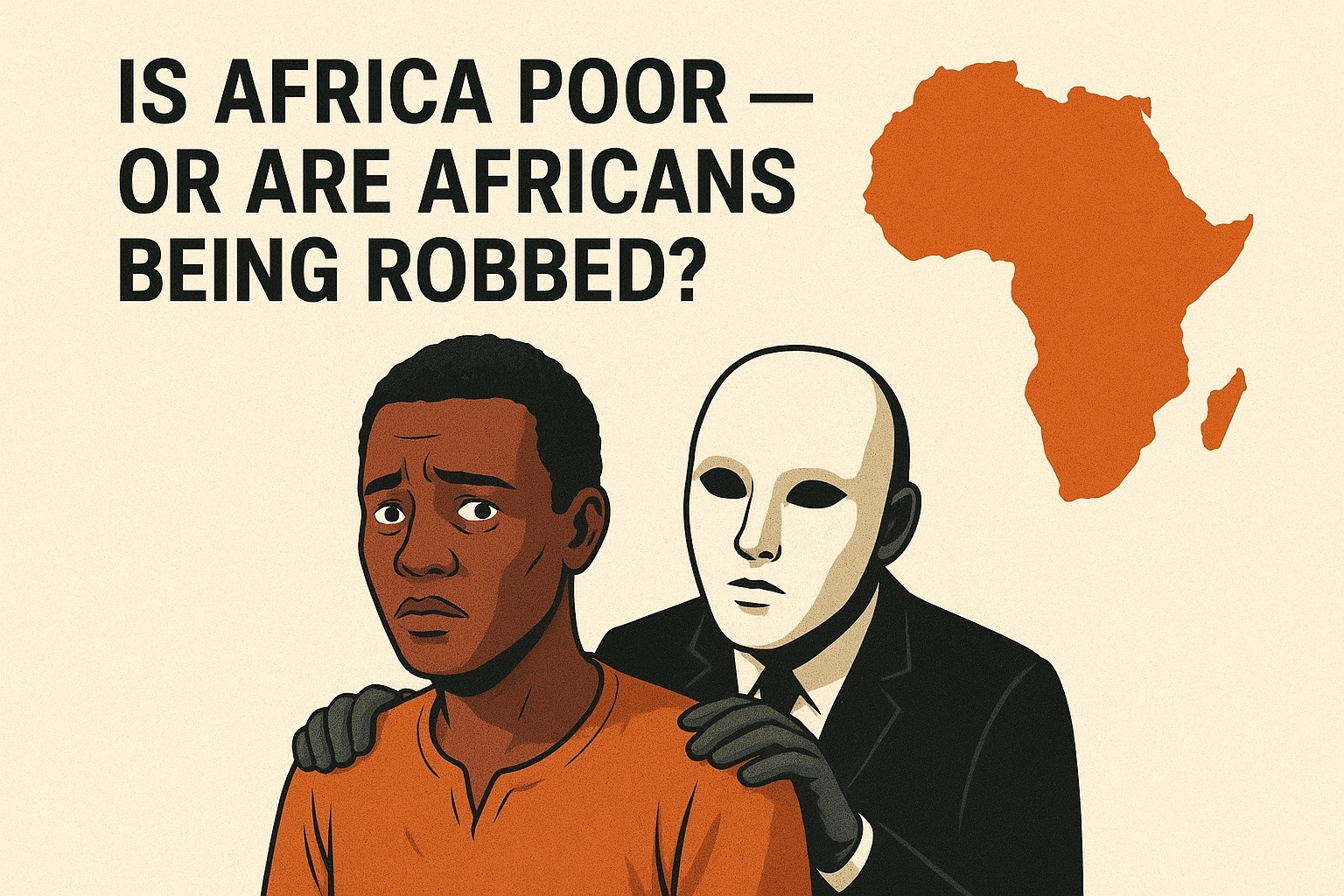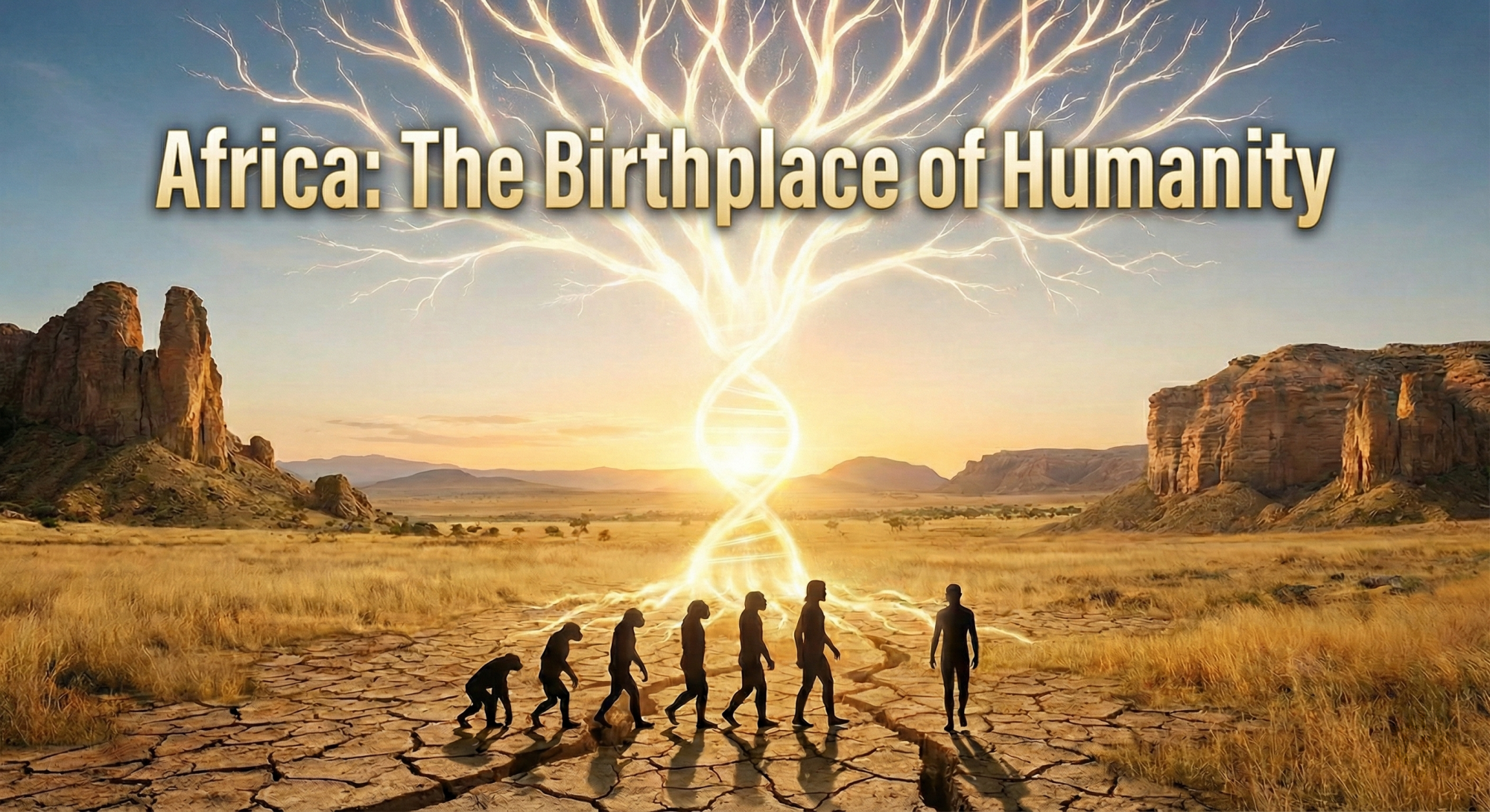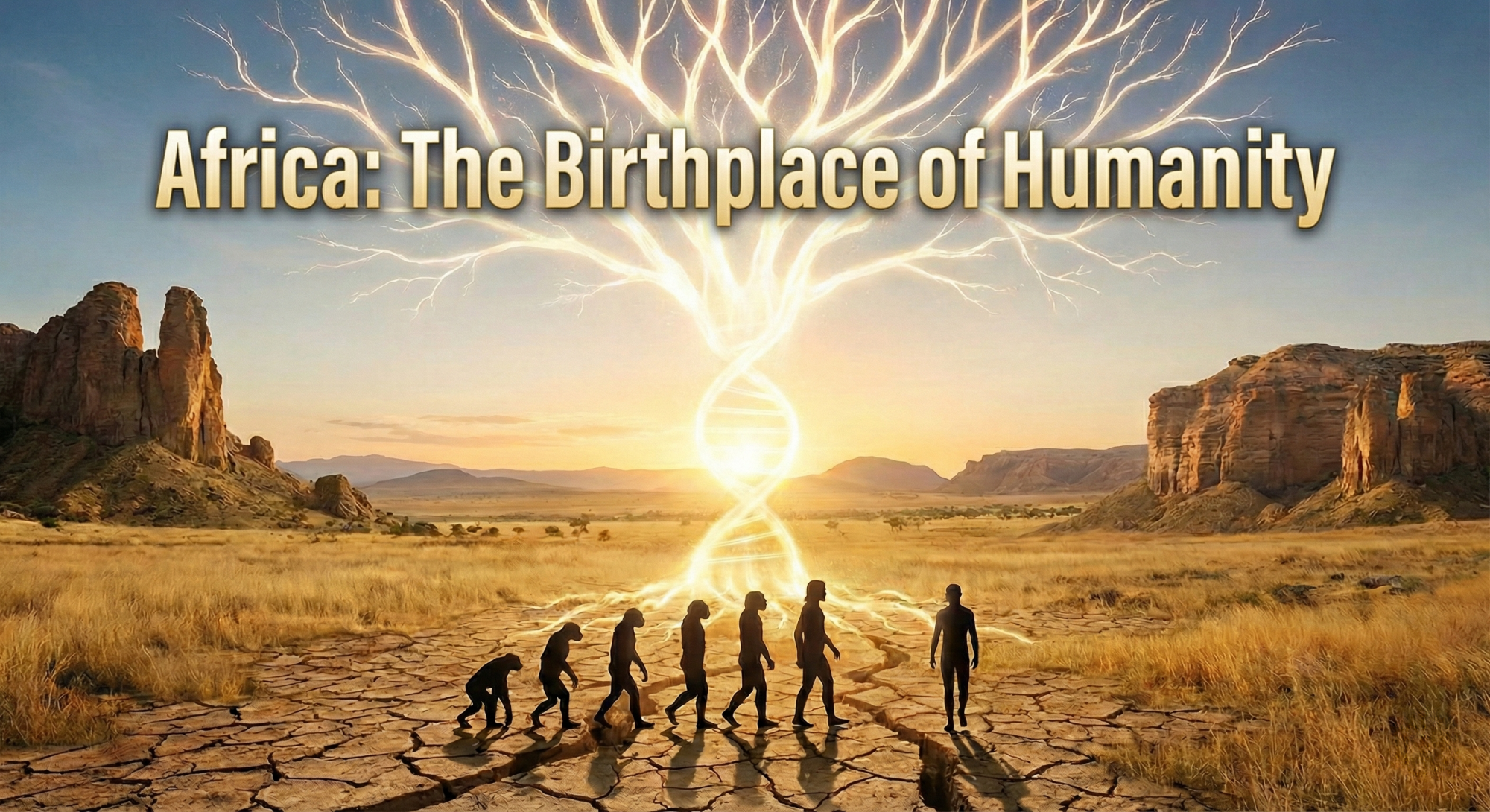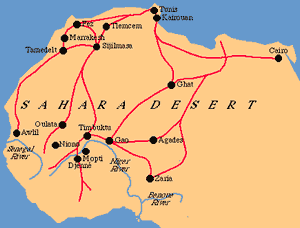Is Africa Poor, or Are Africans Being Robbed?

Is Africa Poor, or Are Africans Being Robbed?
Africa isn’t poor, it’s being robbed. From $88 billion lost annually $30 billion in smuggled gold, the stats reveal who really benefits from Africa’s wealth.
Every time you hear “Africa is poor,” pause. That statement is not just lazy, it’s misleading. Poverty implies lack. But Africa is not lacking. Africa is overflowing with resources: oil, gold, cobalt, diamonds, cocoa, fertile land, and some of the youngest, brightest human talent in the world. What Africa lacks is not wealth, but control of that wealth. So, instead of asking if Africa is poor, the real question is: Who’s robbing Africa, and why are we letting it happen?
Africa Is Loaded, Don’t Let Anyone Tell You Otherwise
Africa is not a cursed soil. It’s one of the richest corners of the planet.
• Out of 54 African nations, 45 depend on commodities for at least 60% of their export earnings. That means nearly every country is sitting on a treasure chest of raw materials.
• In 2022, Sub-Saharan Africa exported almost $197 billion in raw materials. That’s more than the GDP of many European nations. And it doesn’t stop there:
• Africa holds 30% of the world’s mineral reserves, 8% of natural gas reserves, and 12% of oil reserves.
• We produce about 70% of the world’s cocoa, 60% of diamonds, and are home to 40% of global gold reserves.
On paper, Africa looks like the jackpot. So why don’t Africans live like it?
The $88 Billion Heist, Every Single Year
Here’s the part they don’t tell you in school: Africa bleeds wealth every year. The UN estimates that $88.6 billion is lost annually to illicit financial flows. That’s 3.7% of Africa’s GDP disappearing into thin air. How? Through smuggling, shady contracts, tax evasion, and offshore banking.
Let’s make it real:
• With $88 billion, Africa could build 20,000 modern hospitals every year.
• Or fund every child on the continent to complete school.
• Or install clean drinking water systems in thousands of villages. Instead, that money buys luxury homes in Europe, yachts in Dubai, and Swiss bank accounts for a few. So, Africa is not poor. Africa is being looted.
Gold That Doesn’t Shine for Africans
Gold should have made Africa sparkle. Instead, it exposes the rot. In 2022, over $30 billion worth of gold was smuggled out of Africa, mostly ending up in the UAE. In some countries, 32–41% of gold production never enters official records. That means while African soil glitters, African classrooms leak when it rains. Imagine a mining town in Mali or Sudan where trucks of gold leave daily, but the nearest clinic has no electricity and pregnant women deliver with candlelight. That is the paradox of African wealth.
Cobalt Powers Your iPhone, Not Congo’s Future
Every Tesla, every iPhone, every electric car that claims to “save the planet” runs on batteries powered by cobalt. And guess who owns the world’s cobalt? The Democratic Republic of Congo.
• The DRC produces 70–80% of the world’s cobalt.
• Cobalt prices on the global market run into billions annually. But walk through cobalt towns in Congo and you’ll see children digging with bare hands, families living in mud houses, and schools without chalk. The world gets clean energy, while Congolese communities stay stuck in darkness. That’s not poverty; that’s exploitation.
Chocolate for the World, Pennies for Farmers
Take cocoa. Ghana and the Ivory Coast supply over 60% of the world’s cocoa beans. The global chocolate industry is valued at over $100 billion annually. Yet the average cocoa farmer earns less than $2 a day. Think about that next time you see luxury chocolates in European shops. Farmers who grow the raw material can’t afford the very product their sweat makes possible.
Fish Stolen from African Seas
It’s not just gold or cocoa. Even our oceans are being plundered. West African waters are some of the richest fishing grounds in the world. Yet foreign trawlers often illegally scoop up tons of fish, leaving local fishermen with empty nets. The UN estimates Africa loses over $2.3 billion annually to illegal, unreported, and unregulated fishing. So, while the seafood industry abroad thrives, coastal African communities struggle to feed their families.
The Remittance Paradox
Africans abroad try to patch the hole. In 2023, Sub-Saharan Africa received $54 billion in remittances from its diaspora. That’s more than what many countries get in foreign aid. But here’s the irony: while Africans abroad sacrifice and send billions home, our leaders allow $88 billion to leak out every year through corruption and shady deals. We’re pouring water into a leaking bucket.
When the Numbers Hit the Ground
Let’s humanise these stats:
• A child in Sierra Leone sits in a classroom with no desk, while billions in diamonds leave the country.
• A farmer in Ghana can’t afford a bar of chocolate, though his beans fuel a $100 billion industry.
• A mother in Congo delivers by candlelight while cobalt from her soil lights up cities in Europe and America.
• A fisherman in Senegal pulls in an empty net because a foreign trawler took the catch before dawn.
This is the everyday face of Africa’s “poverty.” It’s not a lack, it’s theft.
Why the Robbery Never Ends
How does this robbery stay alive? The playbook is old but effective:
• Bad contracts. Governments sign deals that give away resources cheaply.
• Raw exports. We export crude oil, then import petrol at higher prices.
• Smuggling & corruption. Billions disappear before they reach state accounts.
• Weak taxes. Multinational companies dodge royalties and shift profits offshore.
• No local industry. We export logs, then import expensive furniture. Export ore, then import steel. Export cocoa, then import chocolate. This isn’t poverty. It's economic sabotage disguised as business.
How We Flip the Script
It doesn’t have to stay this way. Other regions have done it, and so can we.
• Shine the light. Publish every mining and oil contract. If deals were signed in secret, they should be reviewed in daylight.
• Process locally. Refine gold, cobalt, and oil here. Build factories that create jobs, not just mines that dig holes. (The DRC has already begun banning raw cobalt exports, forcing local refining.)
• Tax smartly. Close loopholes, track capital flight, and make corporations pay fair royalties.
• Support local producers. Formalise artisanal miners, give farmers fair prices, and protect fishermen from foreign trawlers.
• Invest in people. Redirect resource revenues into schools, hospitals, clean water, and renewable energy, not politicians’ private jets.
What This Means for the Future
Africa has the youngest population in the world. By 2050, one in four people on Earth will be African. If we keep letting our wealth leak away, that youth bulge could become a curse: unemployment, migration crises, and instability. But if we fix the leaks, add value locally, and build industries, Africa can turn its natural wealth into human prosperity. We must stop seeing ourselves as beggars waiting for aid. We are creditors of the world. The phones, cars, jewellery, and chocolates that fuel global lifestyles are powered by African resources. The real poverty is in how little of that wealth stays with us.
The Bottom Line
Africa isn’t poor. Africa is rich. But Africans are being robbed. The statistics scream it:
• $197 billion in raw exports (2022)
• $88 billion lost annually to illicit flows
• $30 billion in smuggled gold (2022 alone)
• 70–80% of global cobalt from the DRC, yet poverty surrounds the mines
• $100 billion chocolate industry built on farmers earning <$2/day
• $54 billion in diaspora remittances, still less than what we lose
The real question is not whether Africa is poor. The real question is: When will Africans decide enough is enough?
N.B.The Majority of our blog readers have yet to join our online community. Please click here to join the movement


